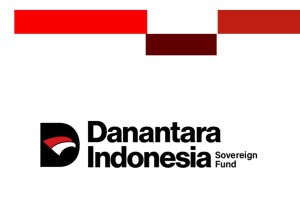Banking as a Service Drives Financial Inclusion in Indonesia
Published on 21/02/2025 GMT+7 Reading time 4 minutes
Banking as a Service (BaaS) is reshaping Indonesia’s financial ecosystem by enabling non-banking entities to offer regulated financial products to millions of underbanked individuals. This innovation is at the forefront of transforming digital banking across the archipelago.
BaaS allows companies without a banking license to leverage the infrastructure and regulatory frameworks of licensed banks. A notable example is the partnership between Bukalapak and Standard Chartered Bank under the BukaTabungan initiative, where Bukalapak manages customer engagement while Standard Chartered provides the necessary banking backbone. This model has enabled foreign banks to rapidly expand their customer base a strategy that saw Standard Chartered triple its customer numbers in Indonesia in just six months.
Indra Salim, audax Director of Sales and Partnership told Indonesia Business Post on Monday, February 17, 2025 that BaaS is a game changer for financial inclusion in Indonesia. "By partnering with established banks, digital platforms can offer essential financial services, such as savings and lending, to communities that traditionally have had limited access to banking,” he added.
Digital platforms including DANA, Grab, and Gojek are also entering the financial services space through BaaS, offering products like linked savings accounts and digital lending. These services simplify access to banking, allowing users to open accounts, access credit lines, and conduct transactions entirely online—thereby reducing intermediary fees and increasing overall efficiency.
However, the rapid expansion of digital banking is not without challenges. Security concerns, including cyber threats and ransomware attacks, remain a significant focus. Salim noted that all implemented solutions by audax must adhere to stringent standards by Indonesia’s Financial Services Authority (OJK). Collaborating with top cloud providers like AWS is an avenue that allows players like audax ensure added data protection and compliance with regulatory requirements.
Looking ahead, audax plans to strengthen its BaaS initiatives beyond Indonesia in markets such as Malaysia, the Philippines, and the Middle East. “With secure and scalable solutions, we aim to drive greater financial inclusion and economic growth not only in Indonesia but throughout the region,” Salim added.
As Indonesia’s digital banking sector continues to evolve, BaaS is emerging as a crucial model in expanding financial accessibility and fostering economic inclusion for millions of underserved individuals.
Financial Inclusion Gains Momentum as Digital Solutions Expand
The push for financial inclusion is gaining traction as digital solutions continue to bridge gaps in access to financial services, according to Salim
Salim highlighted the importance of digital platforms in reaching underbanked populations, emphasizing that technology is transforming the financial landscape. "The integration of digital payment systems, microfinance, and mobile banking has allowed more people to participate in the economy," he said.
With an increasing number of fintech companies offering innovative financial solutions, more individuals and small businesses are gaining access to essential financial tools. According to Salim, digital financial services enable users to save, invest, and transact efficiently, reducing dependence on traditional banking institutions.
"The goal is to ensure that financial services are not limited to a privileged few but are accessible to all, regardless of location or economic status," Salim added.
He also noted that partnerships between fintech firms, banks, and government agencies are crucial in driving financial inclusion. By collaborating, these entities can develop comprehensive strategies that address barriers such as high transaction costs, lack of financial literacy, and limited infrastructure in rural areas.
Salim underscored the role of regulatory support in fostering financial inclusion, stating that clear policies and guidelines are essential to ensure secure and sustainable growth in the sector. "A supportive regulatory framework encourages innovation while protecting consumers," he said.
As digital financial services continue to evolve, Salim remains optimistic that more individuals will benefit from accessible and affordable financial solutions, ultimately driving economic growth and reducing income inequality.
Already have an account? Sign In
-
Start reading
Freemium
-
Monthly Subscription
30% OFF$26.03
$37.19/MonthCancel anytime
This offer is open to all new subscribers!
Subscribe now -
Yearly Subscription
33% OFF$228.13
$340.5/YearCancel anytime
This offer is open to all new subscribers!
Subscribe now






